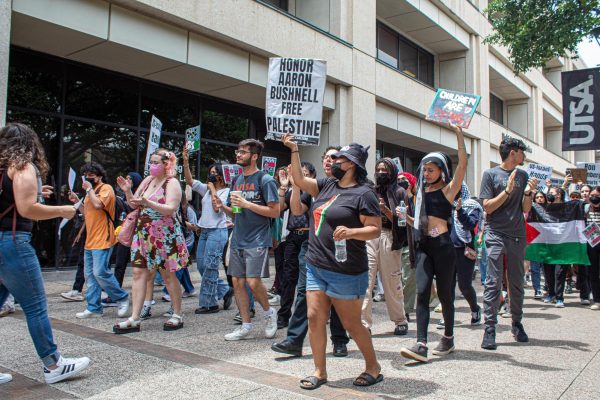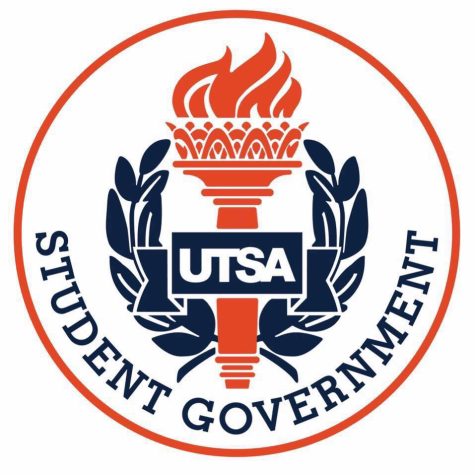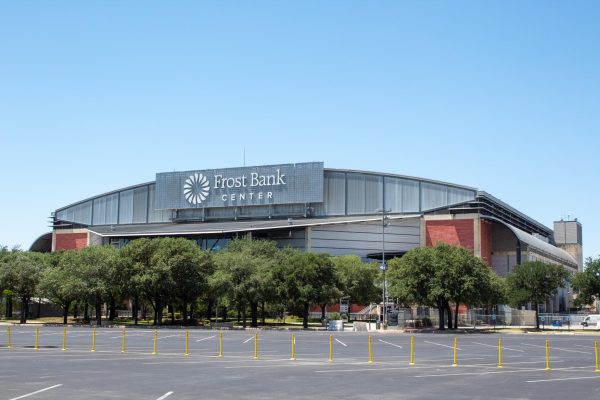UTSA Launches New Campaign to Combat Food Insecurity
February 12, 2021
Campus Services, in tandem with UTSA Dining and the Roadrunner Pantry, have launched a campaign that allows students with meal plans to donate any unused meals to help students who are struggling with food insecurity. Food insecurity is the lack of stable access to sufficient amounts of affordable and nutritious food, and national programs like Swipe Out Hunger are working towards ending such deficiencies among college students.
“The pandemic has changed food insecurity at UTSA,” Nikki Lee, Senior Associate Director of the Student Union, said. “It was particularly higher in spring 2020 as stores were challenged with keeping shelves stocked. The Roadrunner Pantry immediately extended its efforts to include faculty and staff along with students, more than doubling the number of visits we have seen at the pantry.”
This is the first campaign of its kind for UTSA; the Swipe Out Hunger campaign gives students free meals through the GET mobile app. The app contains a digital version of a student’s university ID, which then allows meal plan users to donate a maximum of two unused meals to students; one meal is equal to one trip to the Roadrunner Cafe. The program permits a maximum of 15 meals each semester per student to use at the Roadrunner Cafe. To request a meal, students must complete the online application through the Roadrunner Pantry. An additional bonus is throughout February, UTSA Dining will match each student donation and students who donate a meal will be entered into weekly drawings with gifts donated by both the Rowdy Campus Store and PepsiCo.
Last summer, Campus Services collaborated with UTSA Dining to brainstorm effective ways to address food insecurity. One solution was the Swipe Out Hunger donation drive. UTSA Dining agreed to donate 1,500 meal swipes at the beginning of each year and $13,000 worth of food to the Roadrunner Pantry.
The campaign is expected to have over 3,000 meal plan holders a year, and if each donated two meals, the matching contribution would equal 12,000 meals, plus the 1,500 donations done separately from the drive. Although the Roadrunner Cafe is one mechanism that can combat food insecurity many students still rely primarily on food provided by the Roadrunner Pantry. Therefore, donations to both the Cafe and Pantry are critically important to eradicating food insecurity among students.
“We want to engage with and help every student who needs it,” said Kevin Price, senior associate vice president for housing and campus services. “We expect the number to grow each year as the awareness and the tradition of the meal swipe donation drive grows.”
Natalie Malluru, a senior public health major, serves as the student advocate for the campaign. “I remember my freshman year I would always have 70-80 meal swipes left on my dining card and it was a theme amongst many other students,” Malluru said. “At the same time, I had been volunteering at a clinic that caters to the homeless and seeing how pervasive food insecurity and seeing that it was hiding in plain sight amongst college students did not sit well with me.”
Malluru noticed how days are often marked by the times students have meals-breakfast, lunch and dinner. Without having those meals it often means students lack the ability to focus and are left feeling unhealthy or lacking in essential nutrients. Despite the grim reality plaguing many students, she remained hopeful about the direction of the program.
“I think in the next five to ten years I really want to establish when our donation months are and increase the number of students who participate,” Malluru said. “I really hope this program inspires students, teachers, or even the UTSA community to think how we can create sustainable programs like this and think about not wasting. That is a community I want to live in.”
This story was corrected and updated on April 21, 2021.











